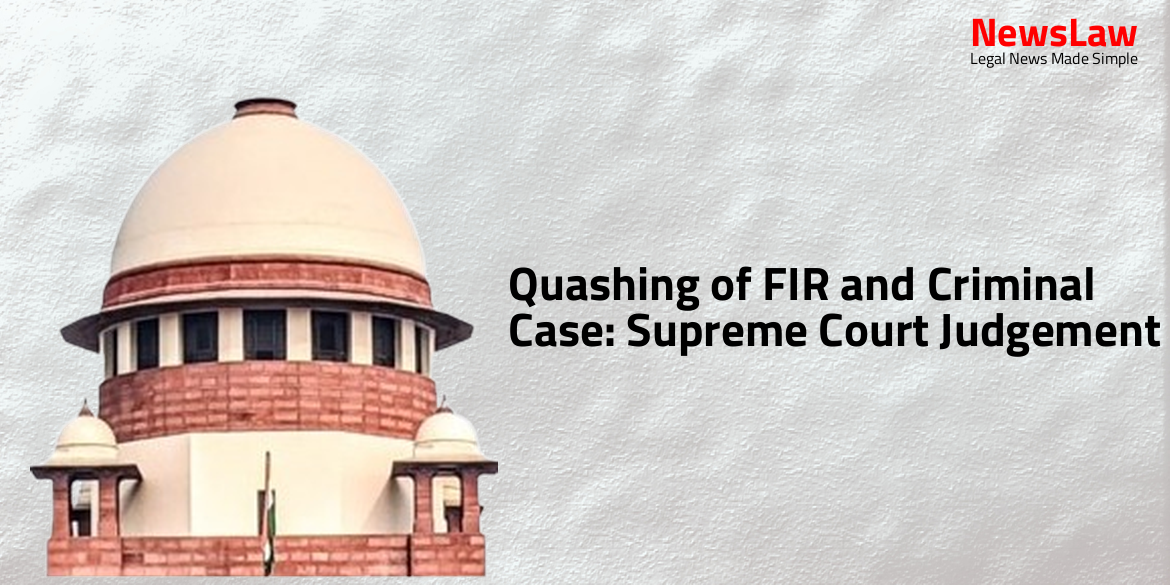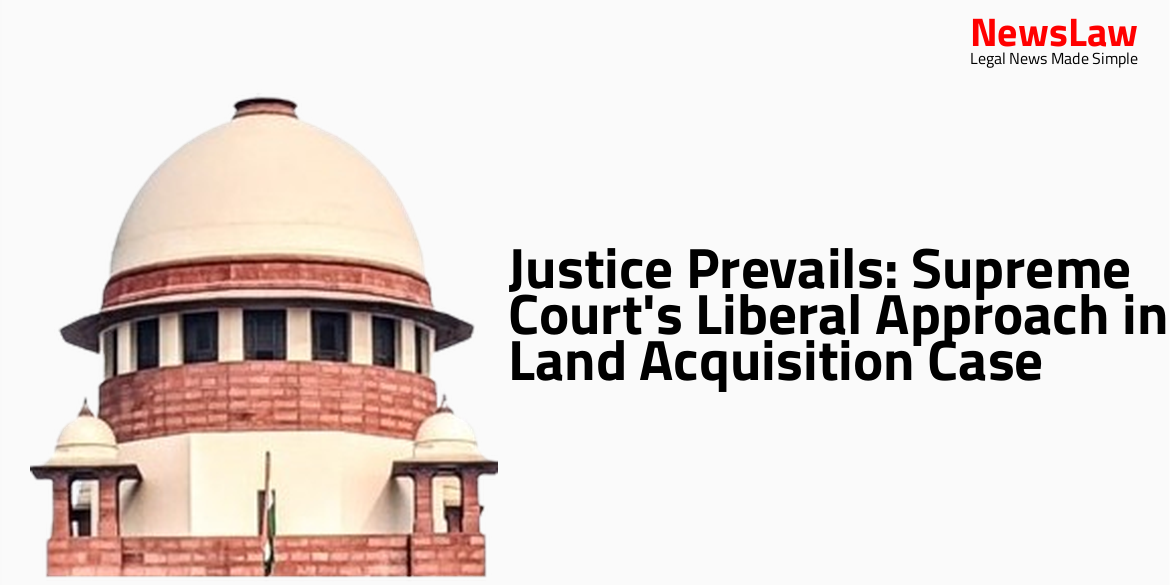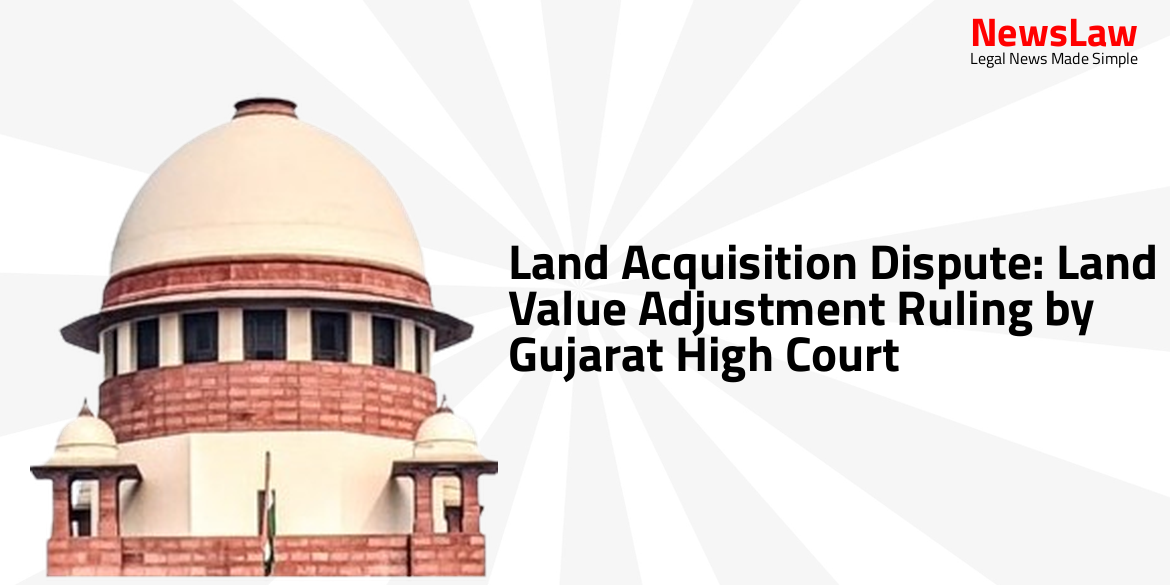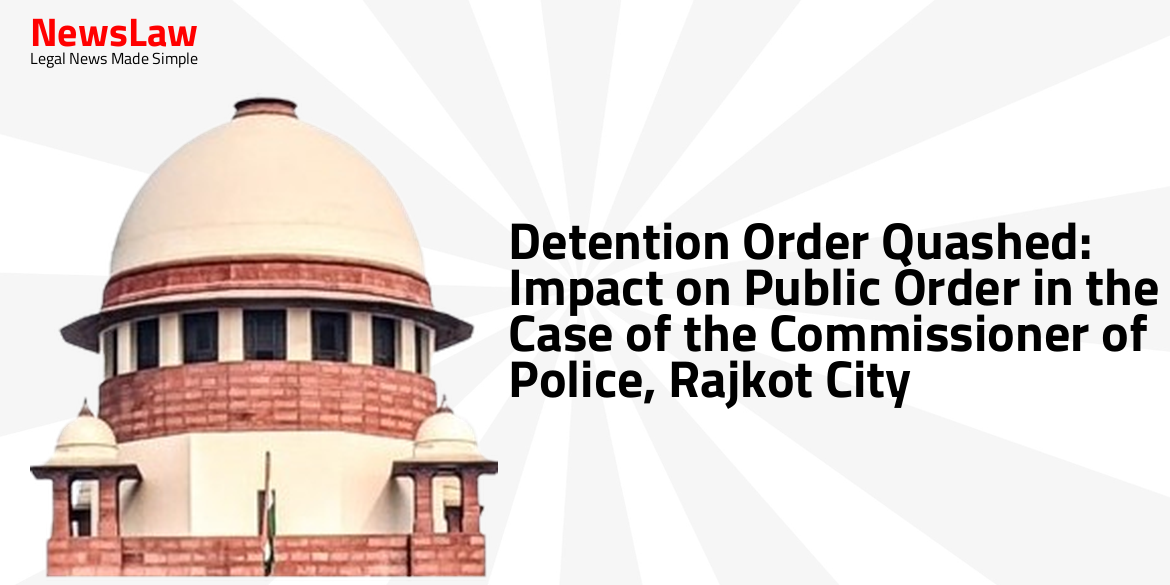In a significant legal development, the Supreme Court of India has pronounced a judgement on the quashing of the FIR and related criminal case. The petitioners had filed a petition seeking to quash the impugned FIR and pending criminal case against them. The matter was pending before the Court of learned Judicial Magistrate in the District of Amreli. The Supreme Court’s decision holds ramifications for future cases of a similar nature.
Facts
- The petitioners have filed a petition under Section 482 of CrPC seeking to quash the impugned FIR and related criminal case against them.
- The FIR was registered at Dhari Police Station, District Amreli under various sections of the Indian Penal Code and the Gujarat Police Act.
- The petitioners seek to quash the FIR and pending criminal case along with all further proceedings.
- The matter is pending before the Court of learned Judicial Magistrate, First Class, at Dhari, District Amreli.
- The petitioners seek relief from the Court to set aside the charges against them based on the mentioned legal provisions.
Analysis
- The High Court should exercise its powers favorably after a prima facie assessment of the circumstances and material.
- If evidence is almost complete or at the stage of final arguments, the High Court should refrain from quashing the proceedings.
- At the stage of quashing proceedings, the Court should not conduct a mini trial or go into evidence.
- In the present case, the offence under Section 326 IPC is non-compoundable, and settlement after almost completing the trial is not a valid ground for entertaining the petition.
- The charges need to be proved during the trial by the prosecution.
- Approaching the Court at the fag end of the trial for quashing proceedings is an abuse of process of law, especially in a non-compoundable offence.
- In non-compoundable offences, settlement after conviction by the trial court may not result in acquittal at the appellate stage before the High Court.
- Timing of settlement crucial in deciding whether to exercise power under Section 482 of the CrPC
- High Court may be liberal in accepting settlement if it is reached immediately after the alleged commission of the offense and while the matter is still under investigation
- High Court should not extensively discuss witness statements recorded under Section 161 of the CrPC while exercising jurisdiction under Section 482
- Trustworthiness of witness statements to be decided when the witness stands in the witness box during trial, not at the stage of exercising jurisdiction under Section 482
- High Court cannot conduct a mini-trial or elaborate discussion while exercising jurisdiction under Section 482 as it would be an abuse of process of law
- The High Court has erred by delving into the details of the allegations and material collected during the investigation against the accused at the discharge stage.
- During discharge or while invoking Section 482 Cr.P.C., the Court’s jurisdiction is limited to determining if sufficient material exists to proceed with a trial against the accused.
- The petition lacks merit and is therefore dismissed without examining the case’s merits.
Decision
- Present petition is dismissed in limine.
- Learned trial Court is directed to pronounce the judgment in Criminal Case No.496 of 2012 on its own merits.
- Trial Court should not be influenced by any observations made in this order.
Case Title: KANJIBHAI SAVJIBHAI ANTALA Vs. STATE OF GUJARAT
Case Number: R/CR.MA/7513/2024



